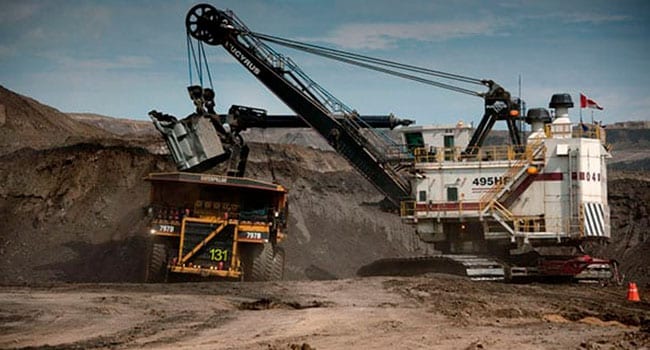 “The country isn’t going to recover unless the oil and gas sector recovers.”
“The country isn’t going to recover unless the oil and gas sector recovers.”
These words from federal Natural Resources Minister Seamus O’Regan made headlines and highlight the importance of Canada’s largest industry.
The reality is that natural gas and oil play an unarguable role in the national economy.
Natural gas and oil are Canada’s biggest source of international investment, and the country’s largest export commodities by value. According to Statistics Canada, exports of crude oil, bitumen, natural gas and natural gas liquids generated more than $102 billion in 2019. Add refined petroleum products such as gasoline to those exports and the total came to more than $112 billion – or about 19 per cent of the revenue from all of Canada’s exports combined.
This export revenue is essential to keeping the national economy functioning. It keeps money flowing into our country so we can grow, expand our industries, create employment for Canadians and continue to import goods from other countries.
Canadians from British Columbia, to Ontario, to Newfoundland and Labrador are involved in the petroleum sector.
Natural gas and oil projects contribute to a multibillion-dollar supply chain associated with more than 10,000 businesses across the country.
In Atlantic Canada, the vital offshore industry supports about 600 supply and service companies.
In 2016-2017, nearly 1,200 companies in Ontario were part of the oil sands supply chain, providing jobs for about 63,000 Ontarians.
In 2015-2016, the oil and gas industry spent more than $3.3 billion on procurement from Indigenous-owned businesses.
Project development can bring valuable economic benefits for Indigenous communities, and can help build strong self-sustaining communities and economic reconciliation. That’s achieved when we work together to find productive ways to share the benefits of resource development.
Oil and gas sector critical to Canada’s economy by Mark Milke, Lennie Kaplan and Tom Olsen
Country-wide, in communities where natural gas and oil projects operate, the spinoffs benefit local businesses such as hotels, restaurants, services and retail outlets, which see increased consumer spending and can then afford to hire additional staff.
All of this translates into creating opportunity and building value for Canadians while shrinking the country’s deficit.
This becomes imminently important when you consider Canada’s recent credit downgrading from AAA to AA+ and the growth of Canada’s deficit and debt. Canada’s debt-to-gross-domestic-product (GDP) ratio is expected to increase to 48 per cent this year.
These economic challenges were driven by the COVID-19 crisis but to avoid lasting negative effects, we need to leverage our economic strengths.
A strong recovery plan and competitive policy measures are essential to ensuring Canadian industries can attract investment. As restrictions ease off post-COVID-19 and world markets start to mend, Canada will be competing with every jurisdiction in the world for more limited investment dollars. Attracting global capital will be critical to growing our economy and getting Canadians back to work.
These objectives can be achieved while leveraging the sector’s leadership in emissions reduction, water protection, and land and species management research and practices.
Canada’s upstream natural gas and oil industry spends more on environmental protection than all other Canadian industries combined. Investing in technology is the backbone of improved environmental performance, and it’s working.
Since 2009, the oil sands industry has collectively reduced per-barrel greenhouse gas emissions intensity by 21 per cent and that’s expected to drop an additional 23 per cent by 2030.
Canada must enable new and continued investment in natural gas and oil to support the innovation needed for successful long-term emissions reduction and environmental performance improvements.
We can supply Canadian energy products to fill growing global demand, confident that we’re doing so with a lower greenhouse gas footprint than competing jurisdictions.
Whether you focus on immediate job and revenue creation, or on a long-term strategy aimed at growth and resiliency, the natural gas and oil industry has a crucial role to play in getting us there.
The job at hand – rebuilding our lives and economy post-pandemic – starts now.
Tim McMillan is president and CEO of the Canadian Association of Petroleum Producers (CAPP).
Tim is a Troy Media Thought Leader. Why aren’t you?
The views, opinions and positions expressed by columnists and contributors are the author’s alone. They do not inherently or expressly reflect the views, opinions and/or positions of our publication.


